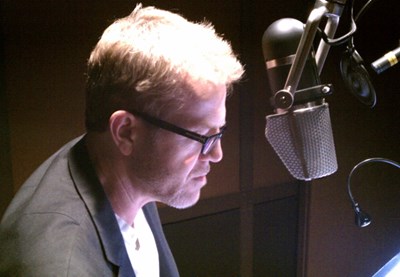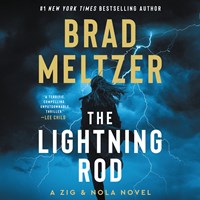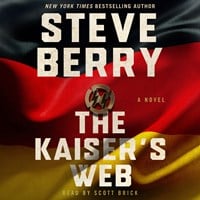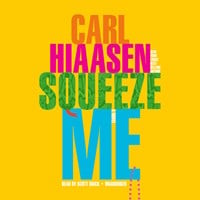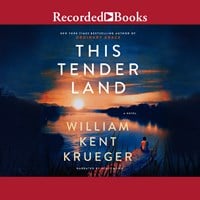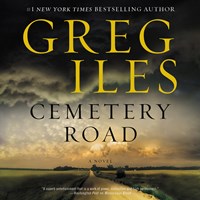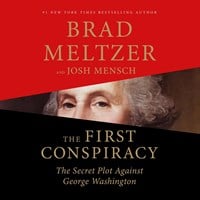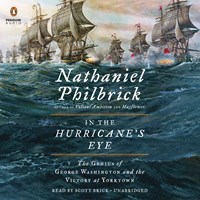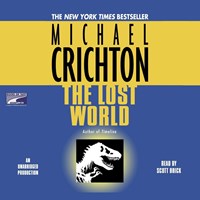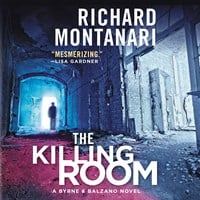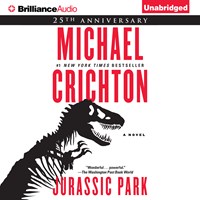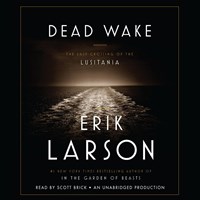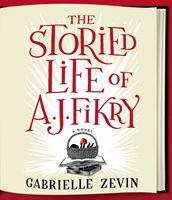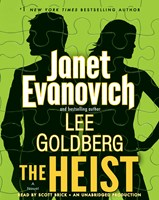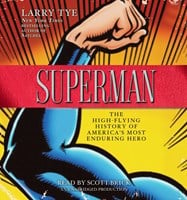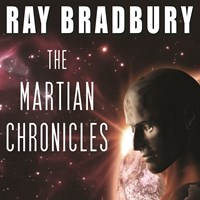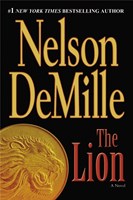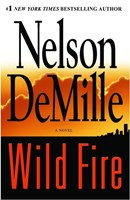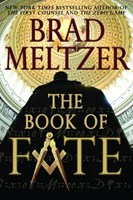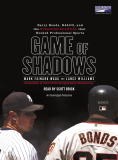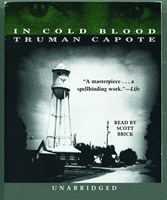Recent audiobooks
Scott's Accolades
Lone Wolf Audie Award 2025 Thriller/Suspense
Intergalactic Exterminators, Inc. Audie Award 2023 Science Fiction
Charlotte's Web Audie Award 2020 Middle Grade
The City On The Edge Of Forever AudioFile Best of 2016 Science Fiction & Fantasy
The City of Mirrors AudioFile Best of 2016 Science Fiction & Fantasy
Valiant Ambition: George Washington, Benedict Arnold, and the Fate of the American Revolution AudioFile Best of 2016 Biography & History
Patriot Threat Audie Award 2016
Heist AudioFile Best of 2013 Mystery & Suspense
Superman: The High-Flying History of America's Most Enduring Hero AudioFile Best of 2012 Contemporary Culture
Capitol Game AudioFile Best of 2011 Mystery & Suspense
Washington: A Life AudioFile Best of 2010 Biography & Memoir
Selections from Dreamsongs AudioFile Best of 2008 Fantasy
Lord Foul’s Bane AudioFile Best of 2008 Fantasy
In Defense of Food AudioFile Best of 2008 Contemporary Culture
The Codex AudioFile Best of 2004 Mystery & Suspense
Speaker of the Dead AudioFile Best of 2003 Science Fiction
No Second Chance AudioFile’s Best of 2003 Mystery & Suspense
Podcasts
Videos
Talking with Scott Brick
Excerpts from a Guest Narrator appearance on Goodreads Audiobook Discussion Group, July 2016, sponsored by AudioFile and moderated by Contributing Editor Aurelia C. Scott:
How did you get started in audiobooks?
Like most narrators, I was first an actor. For me, the "Aha!" moment came when I was a Theater major at UCLA and auditioned for a professor, Gary Gardner, at the beginning of my third year. He took me aside afterward and said, "What have you done with your voice? “ I had no idea what he meant so I just said I didn’t do anything with it.
“No,” he said. “Somewhere over the summer you realized it was a very potent instrument and you learned how to use it." I just shook my head No, but I trusted that something might have happened, even if I couldn't recognize it. When I think back now to the beginning of my voiceover and audiobook career, it was that day in room 1330.
The cool third act of the story is that last year UCLA brought me back to the Theater Department as an instructor. I'm teaching two classes on campus, Audiobook Narration and Introduction to Voiceover, the latter of which was taught in room 1330. The first day of class, I stood in the spot where I'd stood all those years ago and told the class my story about Gary Gardner. Then I went outside to the spot where Gary would always grab a smoke, what we call the Gary Gardner Memorial Bench, and thanked him.
Who else comes to mind as inspiration?
Richard Allen, because he was a great help to me when I started out, and I still miss him every day. He passed so young, and there were so many more books for him to read, but I'm grateful for all he left behind. I still have not listened to 12 YEARS A SLAVE, I think I've been saving it up until the time was right. But I have listened to his production of UNCLE TOM'S CABIN, and that man was brilliant.
Why do you think you’ve had success as a narrator?
I absolutely attribute that to my passion for reading. Without a doubt, my love of books came from my parents. Not only would they read to me at night, but they encouraged me to read anything I wished. Even comic books despite the fact that they'd grown up through an era where comic books were not only discouraged but almost suppressed as a communist influence. (Any book fans have a copy of SEDUCTION OF THE INNOCENT out there...?)
Which do you prefer--nonfiction or fiction?
I try not to discriminate between them--at least when I'm working--because I always want to keep learning, and nothing does that like reading non-fiction. While working on DEAD WAKE, I went to our local video store--which still has VHS tapes!--and rented everything I could find on the Lusitania. Many of the survivors and witnesses quoted in the book were shown on the documentaries, so I found it endlessly fascinating. Erik Larson's work just blows me away. I hadn't narrated anything of his after DEVIL IN THE WHITE CITY, so being picked for DEAD WAKE was a privilege.
I hope listeners enjoy Truman Capote’s IN COLD BLOOD as much as I did! A political reporter from the NY Times wrote about listening to audiobooks while driving around the country on the campaign trail, saying that that I scared her so badly while driving through Kansas listening to IN COLD BLOOD that she couldn't get out of her car. I perversely felt terrific about that!
How long did it take to narrate Ron Chernow’s biography of HAMILTON?
We typically record about three finished hours a day, so, it must have been eleven or twelve days. Eleven or twelve fascinating days, because I learned so much! When I moved to Manhattan briefly for medical treatment, I lived in the building next door to Trinity Church, and my living room window looked down on Alexander Hamilton's grave. The day I was to move back home I went there to pay my respects. Working on that book was a terrific highlight of my career, and I respect Ron Chernow so much for educating us about our Founding Fathers, and to see him serve as the technical adviser for the musical is just wonderful. So great it has had such an impact on Broadway!
As for Hamilton himself, I think he'd feel hugely vindicated; he was a very misunderstood man, reviled (by some) in his time, and as a result of his life being cut short, never got the recognition he deserved. But the financial system he built has weathered the test of time, the policies he created for the Coast Guard were still as he'd written them all the way into the Kennedy administration, and his name is now known by more Americans than at any other time in our nation's history.
How do narrating jobs come to you?
It happens any number of ways: typically it's through the publishers (and I try not to turn down too much because I want to expose myself to more and more authors and learn as much as possible). Sometimes authors will get in touch with me directly and we'll figure out a way to make it happen. I've also approached certain favorite authors of mine to license their work and publish it myself, which has been hugely exciting and as creatively rewarding as anything I've ever done. I'm currently trying to secure the rights to a book about the making of my favorite film of all time and I just landed the rights to a biography of Frank Herbert called DREAMER OF DUNE. Hope to have both on sale before the end of the year.
I’m almost done with NAVIGATORS OF DUNE by Brian Herbert and Kevin J. Anderson, and it's actually shaping up to be a pretty sci-fi-centric summer for me. And for all you Covenant fans, I’m happy to say we just signed a contract last week for THE SECOND CHRONICLES OF THOMAS COVENANT, and the first volume, THE WOUNDED LAND, is available on my website. Thank you for your support in the past, as well as for your patience. (As I announced on my website several years ago I was diagnosed with cancer and had to focus on getting well. Which I am, thankfully, so it’s back to The Land I go!)
I just got the rights to the best episode of the '80s revival of The Twilight Zone: "Her Pilgrim Soul." Fans of the series loved the episode so much that Alan Brennert wrote it as a short story, as well. I'm going to produce the story collection on audio, and am blessed to say that the star of the 1985 episode, Kristoffer Tabori, has agreed to read that particular tale. If any of you have heard his audiobooks then you already know he's brilliant.
After that I continue the Second Chronicles of Thomas Covenant which will (almost) finish off the series for me. Then I go back into the studio to record DREAMER OF DUNE, Brian Herbert's biography of his father, Frank. It's a beautiful book, and really shows what a magnificent partnership Frank's marriage to his wife Beverly was: a writer herself, she was the perfect sounding board for Frank, and a wonderful story generator. Those of you who've followed the Dune saga may have recognized that all of the powerful men in the series have really strong wives, something Brian learned firsthand from his parents, and really great to see in fiction.
With any of my favorite authors, it's always an honor to be associated with their work. I am only as good as the elbows I rub, and those are some fabulous elbows indeed. I wish I'd been able to meet all the authors whose work I’ve narrated, especially those that are gone now, but I'm grateful to have met as many as I have. That’s the best part of this business, meeting the men and women whose work I've loved for years and years. I got into audiobooks because I'm just like you, first and foremost a book fan, so meeting my favorite authors is an absolute thrill. And quite a few of them have become close friends.
How do you decide on pacing the narration, and adding emphasis?
The pace is always determined by the action, but not the way you might think. It's counter-intuitive, almost perverse, but nothing will amp up the tension more than slowing down when the audience wants you to speed up. There's also the technical aspect of it: speak too fast during an action sequence, the listener might miss most of it. There are also parts where you have to let the tension flow out of the scene, present it so it sounds as if all will be well… right before something really scary or surprising happens.
All storytelling is manipulation and we don’t mind it when we’re being manipulated artfully. Doing audiobooks, I have to be sensitive to the way authors manipulate the audience and try to help them do their job, which can be a delicate balance if a book is also a popular movie. With Jurassic Park, it was how much to bow to the popular version of the story and how much to make the audiobook its own original thing? While doing Frankenstein I couldn’t growl the way Boris Karloff did, because the monster actually narrates about 40% of the book, but narrating The Graduate, I just had to read "Elaine!!! Elaine!!!!" like Dustin Hoffman does in the film.
Are you surprised about the proliferation and popularity of audiobooks?
I'm delighted by it but not surprised. I don't think anyone could have seen how technology would spur their growth, but I don't think phones, apps and mp3s are entirely responsible for its success. I think it's because we used to be read to as children and we miss it. So in that sense, seeing society rediscover that joy isn't all that surprising, considering how deep it is in all of us.
Do you listen to audiobooks yourself?
I absolutely listen to audiobooks! Every spare moment I can. Some personal favorites are the Robert Galbraith/J.K.Rowling mysteries, THE BOOK THIEF, the Harry Hole books by Jo Nesbo (Robin Sacks is easily my favorite narrator of all time, it is such a devastating shame that he's gone), and IN A DARK, DARK WOOD (Imogen Church is mind-bogglingly good!). And, I'm currently splitting time among three books:
LIVING ON AIR by Joe Cipriano (fascinating memoir of a man who started in radio, then became THE voice in TV promos); HUCKLEBERRY FINN, narrated by Patrick Fraley (legendary in the voiceover world, has done more than 4,000 hours of animation, his voices are brilliant...!); KILLING FLOOR, the first Jack Reacher novel, narrated by Dick Hill who is an old friend, but this is the first time I'm listening to one of his books. Having a blast!
December 2004: Prolific Scott Brick mounted his Golden Voice pedestal in 2004 after a relatively short time as a narrator. “I went over the 200-title barrier just a few months ago,” he told AudioFile in September. “The first year or so I did this, the work was slower than it is now, but by, maybe, my third year, I was doing 50 titles per annum. Some only take one day, sure, but others take three weeks, so it really blows me away to have done that many unabridged audiobooks that quickly!”
The winner of a Science Fiction Audie and several Earphones Awards, Scott credits his quick success to producers Stefan Rudnicki and Dan Musselman, whom he met in 1999 when both worked for Dove Audio/NewStar Media. Stefan recalls: “I was then executive producer and publisher at Dove. A guy who worked in another department kept bugging me--I mean for months--about auditioning his friend Scott. I finally gave in.”
Scott picks up the story. “My very first recording gig at Dove was on Dan’s last day there before he left to build and run Books on Tape’s first studio. He heard me, gave me his card, and asked me to record for him. Since then I’ve done 120 jobs just for BOT. I don’t know what it was, but he heard something in me he liked and pretty much immediately made me his go-to guy.”
Since his first recordings for Dove, Scott has worked for a number of publishers on a wide variety of material, from thrillers and sci-fi to classics and a smattering of nonfiction. Musselman calls Scott “a natural storyteller--interesting, easy to listen to, and someone the listener likes and has a personal connection with.” Further, he “understands the author’s intent. His voice is the vehicle that carries the author’s vision into our minds.”
Rudnicki agrees, adding, “Scott is a tremendously efficient reader, averaging perhaps a single pickup [i.e., error] per page for most kinds of material. He loves to read, and that informs his narration. He has a rare ability to read from an easy neutral place, never pushing. Most important, he’s still--even now that he has gained a certain celebrity status--willing and able to learn new tricks. I know that several audio publishers have tried to pigeonhole Scott, but his personality and presentation truly defy easy categorization. To me, his best work is always when he’s trying a new author, genre, or style.”
In past issues, AudioFile has praised his understated approach and noted: “In all his work, Brick almost sings in a youthful, manly voice brimming with personality and gusto.” He seems to have an intuitive ear for the authorial voice, an uncanny ability to portray the personality of the author as well as those of his characters. As Musselman says, “He lets the author’s words do the work.”
Scott himself characterizes his approach more modestly: “I’m not one of these guys who do a lot of voices. Accents, yes; characterizations, yes; but I can count with one hand the times I’ve done a serious, heavy, over-the-top character voice--probably because, when I hear those tapes later, it makes me cringe. For some people, that style works brilliantly, and I love hearing it. For me, not so much.”
A native of Southern California, Scott has been an actor (among other things) since leaving UCLA in the late 1980s. “I spent about 10 years in a traveling Shakespeare company, doing dozens of shows all over the state,” quoth “The Brickman,” as he sometimes calls himself. “I guess I’ve had a pretty solid grounding in the classics, as well as contemporary work. Beyond that, I’ve been a fan of old-time radio my entire life and have always been passionate about the spoken word. That’s the reason I wanted to be an actor, because I’m so fanatic about telling stories. And audiobooks are the purest form of doing that, aren’t they?”
But not the only way, at least not for someone as versatile and enterprising as The Brickman. For instance, he recently opened on stage in his own dramatization of three stories by his friend Orson Scott Card. Sci-fi meister Card directed, and Rudnicki, a graduate of Yale Drama School, also appeared. “I keep returning to the stage,” says Scott, “no matter how busy I get doing other stuff.”
The other stuff includes “a film script in preproduction, which is always a great thing to be able to say at parties, right?” Beyond that, he’s got a Batman story “burning” in him that he is “just itching” to write. “The editor of DC Comics told me he likes it. He’s just got to get the powers that be to approve it. So if all goes well, I’ll finally get a chance to write comics. A dream come true.”
Narrating, acting, writing--Scott says he’ll do whatever feels right: “Not anything crazy, but if it pays, I’m in. Sometimes I make more doing straight acting jobs; other years I do a lot of writing assignments. For the last few years, audiobooks have brought in about 70 percent of my income. I mean, I make my living off books. How cool is it to be able to say that? I can’t tell you how many times I go to parties and talk with people who don’t really enjoy their work. Yet I know my eyes are always lighting up when I get to talk about mine.”
Scott feels lucky now to be in such a position that if a job comes along that may not pay much but that interests him, he can take it. “Audiobooks have given me that freedom, that security, and it’s incredibly liberating. I used to write magazine articles for a living, did about 300 in three years, to the point that I stopped enjoying it. Now I can take those gigs when they come along and have fun with them. I can connect with what made me love the work in the first place. As soon as I read one audiobook, I want to do more.”
And face lighting up partly in jest and partly with a kind of eyes-bigger-than-his-stomach enthusiasm, he concludes, “I guess I won’t be happy until I’m recording every book published!” --Yuri Rasovsky, December 2004
Photo courtesy of narrator


